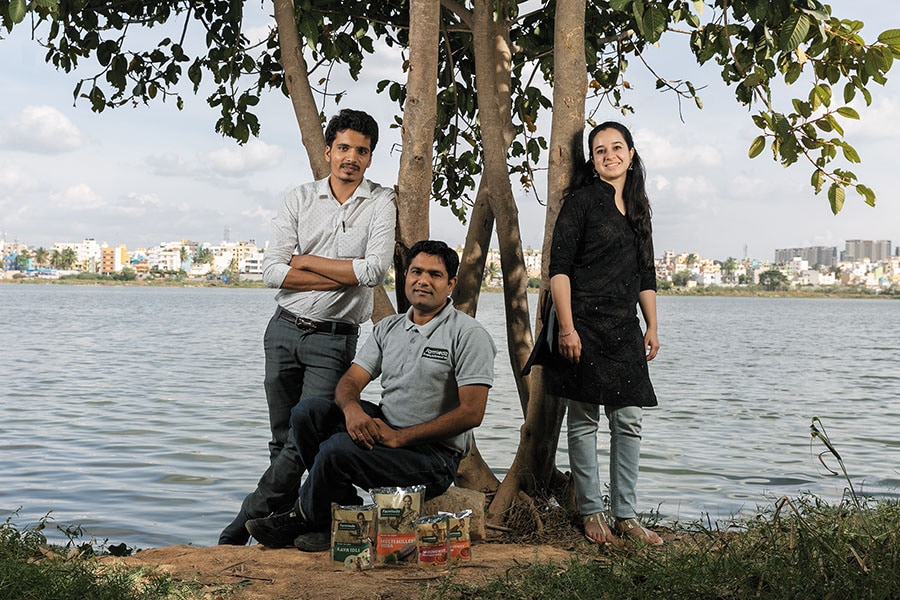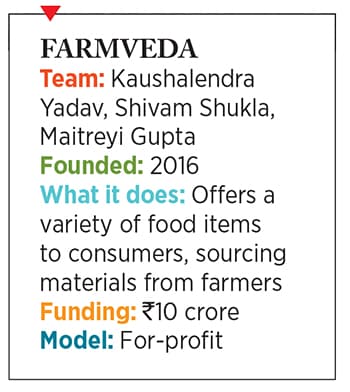
Farmveda: Seed Capital
Farmveda, the for-profit venture of a Bengaluru-based cooperative, helps farmers earn more through value-added products
 Farmveda CEO Kaushalendra Yadav (centre), head of marketing & communications Maitreyi Gupta, and head of operations Shivam Shukla. Farmveda has a 13-product portfolio
Farmveda CEO Kaushalendra Yadav (centre), head of marketing & communications Maitreyi Gupta, and head of operations Shivam Shukla. Farmveda has a 13-product portfolio
Image: Madhu Kapparath
In 1946, a farmer strike against exploitation started the milk cooperative movement in Gujarat’s Anand. Over 70 years later, the group that the cooperative has grown into, better known as Amul, closed the fiscal with close to ₹41,000 crore.
The success of the Amul model inspired a professor from IIM-Bangalore to mull a similar structure for small farmers many of whom are committing suicides to escape rising debt. Along with an Infosys co-founder (both requested anonymity), and investment and guidance from Social Alpha, he set up a philanthropic unit, Centre for Collective Development (CCD) in 2005, followed by India Farm Foods (IFF), branded as Farmveda, a for-profit venture, in 2016.

While CCD helps farmers on the ground, Farmveda makes value-added products like idli and dosa mixes that help farmers earn more. “For instance, groundnut [as a raw material] sells at ₹40 per kg, but a groundnut podi chutney sells at ₹400 per kg. CCD helps farmers sell raw materials to corporates and MSP units, but Farmveda gets them bigger margins,” says Maitreyi Gupta, a team member.
The processing units for these mixes have been outsourced, but Farmveda will soon set up its own units. Farmveda’s 13-product portfolio includes ready-to-make upma, lemon poha, and dosa, idli and chutney mixes that are available across 400 stores in Bengaluru and on ecommerce platforms like BigBasket and Amazon. They are also working on their outreach. “We are doing events like the TCS 10K run, Spirit of Wipro run where we set up our stalls, cook and serve food, especially healthy products like ragi and multigrain products,” says Gupta.
(This story appears in the 30 November, -0001 issue of Forbes India. To visit our Archives, click here.)





